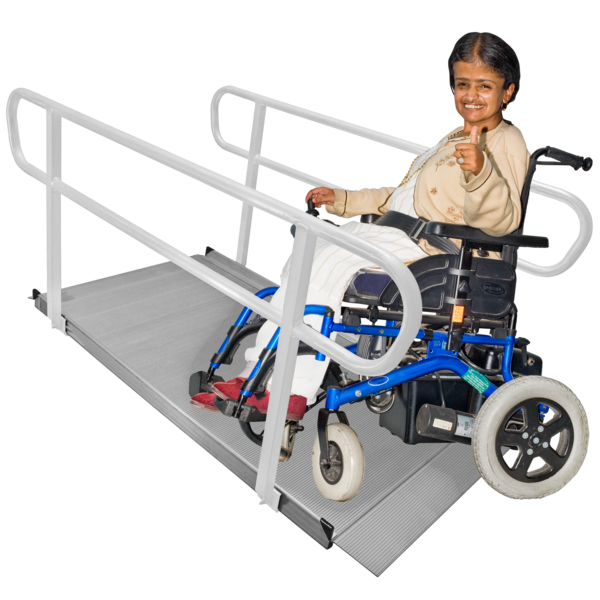In a recent
survey
 A survey is when someone asks you to answer some questions.
of people with a
learning disability
A survey is when someone asks you to answer some questions.
of people with a
learning disability
 A learning disability is to do with the way someone's brain works. It makes it harder for someone to learn, understand or do things.
, Mencap found that 24% said they felt lonely ‘a lot’. [1]
A learning disability is to do with the way someone's brain works. It makes it harder for someone to learn, understand or do things.
, Mencap found that 24% said they felt lonely ‘a lot’. [1]
This compares to just 3.4% of the general population who said they felt lonely ‘often or always’. [2]
Vijay Patel, Campaigns Assistant at Mencap and who has a learning disability, said:
“Christmas is all about family and meeting up with friends. This ‘Christmas cheer’ can make a lot of people feel lonely at Christmas time if they don’t have anyone to spend it with. For people with a learning disability, like me, who face prejudice and stigma because they have a learning disability, it means they are excluded from lots of social things and they can feel even lonelier as a result. Fear of abuse or not having any support to be independent means that people with a learning disability might not be able to leave their homes and get out and about, and you’ve got a ‘perfect storm’. We’re now seeing high levels of loneliness facing people with a learning disability.
“I was lonely for years. I found it hard to get a job, I felt anxious travelling and I ended up being stuck at home at lot because I didn’t always have anyone to support me to go out. I was beginning to give up hope. But it all changed when Mencap supported me and helped me get a job. Now I get out of the house and I’ve made new friends. I am more confident and independent – I’m captain of my football team. In the past, I spent Christmas stuck at home but this year I will be going out with friends – going bowling, for drinks at the pub and to watch football on Boxing Day. People with a learning disability shouldn’t face loneliness at Christmas or any other time of year. I’ve broken free of loneliness. Now let’s help make sure thousands of others can one day say the same. Everyone’s Christmas is unique but no one should spend it alone.”
There are 1.5 million people in the UK with a learning disability, defined as a reduced intellectual ability which affects people for their whole lives. People with a learning disability often take longer to learn and need support with everyday tasks, like cooking, managing appointments, budgeting, travelling and in some cases personal care.
Due to stigma and a lack of understanding about what a learning disability is, people with a learning disability are more likely to be socially isolated, live in poverty and die prematurely compared to their non-disabled peers.
Mencap is working to change this by supporting people with a learning disability to feel empowered and included in all aspects of their lives through a range of programmes including an inclusive sports programme in schools, All Move; a supported
employment
 Employment means having a job.
programmes helping people into work; a friendships and
relationships
Employment means having a job.
programmes helping people into work; a friendships and
relationships
 Relationships are about the people in your life. You might have different types of relationships like friendships, family relationships, or a boyfriend or girlfriend.
programmes like Gig Buddies as well as through delivering personal support to help people with a learning disability lead independent and fulfilling lives every day of the year.
Relationships are about the people in your life. You might have different types of relationships like friendships, family relationships, or a boyfriend or girlfriend.
programmes like Gig Buddies as well as through delivering personal support to help people with a learning disability lead independent and fulfilling lives every day of the year.
The first ever Government loneliness
strategy
 A strategy is a plan to show what an
organisation
A strategy is a plan to show what an
organisation
 An organisation are a group of people who work together.
, or a person, wants to do and how they are going to do it.
was launched in October 2018 and set out the approach to tackling loneliness in England. Despite this, Mencap says that not enough is being done to tackle the loneliness epidemic faced by people with a learning disability. Mencap is asking people to sign up to help tackle the loneliness epidemic faced by people with a learning disability by either supporting its programmes or volunteering their time.
An organisation are a group of people who work together.
, or a person, wants to do and how they are going to do it.
was launched in October 2018 and set out the approach to tackling loneliness in England. Despite this, Mencap says that not enough is being done to tackle the loneliness epidemic faced by people with a learning disability. Mencap is asking people to sign up to help tackle the loneliness epidemic faced by people with a learning disability by either supporting its programmes or volunteering their time.
If people are interested they can find out more at www.mencap.org.uk or follow #HereIAm.
-ENDS-
[1] Mencap, Nightlife Survey, October 2019.
[2] ONS, Disability, well-being and loneliness, UK: 2019 Report, December 2019.
For further information, contact Mencap’s media team on: media@mencap.org.uk or 020 7696 5414 (including out of hours).
Notes to editors
According to ONS’s Disability, well-being and loneliness, UK: 2019 report published on 2 December 2019, the proportion of disabled people (13.3%) who report feeling lonely “often or always” is almost four times that of non-disabled people (3.4%), with the greatest disparity for young adults, aged 16 to 24 years old.
This data is taken from the
Community
 A community is the people and places in an area.
Life Survey from the Department for Digital, Culture, Media and Sport.
A community is the people and places in an area.
Life Survey from the Department for Digital, Culture, Media and Sport.
Mencap’s nightlife survey found that out of 408 adults with a learning disability, 24% reported feeling lonely “a lot”. The survey question was based on the Community Life Survey, with answer options amended to make them more
accessible
 Accessible means something is easy for people to use or join in with. For example: Accessible writing means the writing is easy to read and understand.
for people with a learning disability.
Accessible means something is easy for people to use or join in with. For example: Accessible writing means the writing is easy to read and understand.
for people with a learning disability.
About Mencap
There are approximately 1.5 million people with a learning disability in the UK. Mencap works to support people with a learning disability, their families and carers by fighting to change laws, improve services and access to
education
 Education is when you learn things. When you fill in a form to get a job, education means you write where you went to school, college or university.
, employment and
leisure
Education is when you learn things. When you fill in a form to get a job, education means you write where you went to school, college or university.
, employment and
leisure
 Leisure is when you have time to do things you enjoy like playing sports or going to the pub.
facilities. Mencap supports thousands of people with a learning disability to live their lives the way they want.
Leisure is when you have time to do things you enjoy like playing sports or going to the pub.
facilities. Mencap supports thousands of people with a learning disability to live their lives the way they want.
For advice and information about learning disability and Mencap services in your area, contact Mencap’s Freephone Learning Disability Helpline on 0808 808 1111 (9am-3pm, Monday-Friday) or email help@mencap.org.uk.
What is a learning disability?
- A learning disability is a reduced intellectual ability which can cause problems with everyday tasks – for example shopping and cooking, or travelling to new places – which affects someone for their whole life;
- Learning disability is not a mental illness or a learning difficulty, such as
dyslexia
 Dyslexia is a learning difficulty. People who have dyslexia can find it hard to read, write and spell.
. Very often the term ‘learning difficulty’ is wrongly used interchangeably with ‘learning disability’;
Dyslexia is a learning difficulty. People who have dyslexia can find it hard to read, write and spell.
. Very often the term ‘learning difficulty’ is wrongly used interchangeably with ‘learning disability’; - People with a learning disability can take longer to learn new things and may need support to develop new skills, understand difficult information and engage with other people. The level of support someone needs is different with every individual. For example, someone with a severe learning disability might need much more support with daily tasks than someone with a mild learning disability.